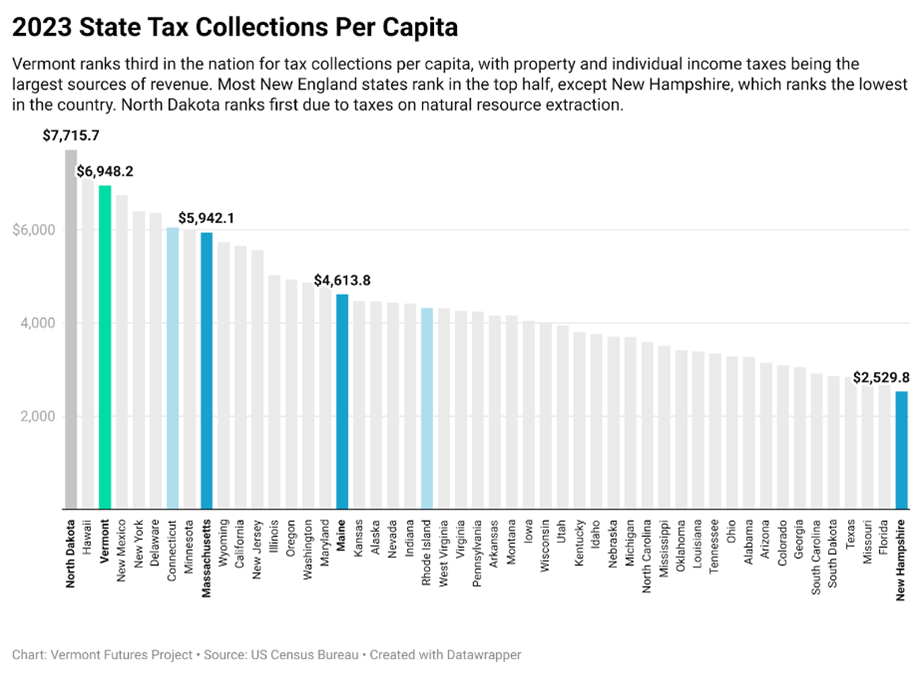Common Ground: Working Together to Address Vermont’s Affordability Crisis
Each year, the Vermont Chamber of Commerce outlines our legislative priorities with one focus in mind: creating the conditions to advance the Vermont economy. This year, our goals align closely with those voiced by Vermonters at the polls: addressing affordability, fostering economic growth, and doing the hard work to solve Vermont’s toughest challenges.
Affordability is at the forefront of these challenges. Vermonters are grappling with rising costs, driven by demographic pressures and systemic issues in areas such as education finance spending, housing, and healthcare. Based on data compiled by the Vermont Futures Project, our state must add an average of 13,500 people to its workforce annually through 2035 to keep the economy thriving in the face of demographic shifts. Meanwhile, meeting current housing demand will require tripling Vermont’s housing output to produce 36,000 new units by 2029.
Addressing this level of need is even more pressing given Vermont’s ranking as the third-highest state in the nation for tax collections per capita, according to the U.S. Census Bureau. Property and individual income taxes remain Vermont’s largest sources of revenue—placing additional stress on families and businesses already struggling with limited housing options and rising costs. While band-aid solutions might feel appealing, real progress requires honest conversations, a shared commitment, and a willingness to embrace compromise. We need solutions that tackle the root causes, not just the symptoms.

Last year’s success in modernizing Act 250 demonstrated how stakeholders with historically opposing sides commit to working together, and in doing so, real progress can be made—even when the process is challenging and compromises are required. By remaining fully engaged and working through disagreements, participants honored diverse perspectives and paved the way for continued collaboration, providing a blueprint for how to accomplish meaningful change. This model of purposeful engagement—where people listen to different viewpoints, set aside rhetoric, and remain focused on shared goals—must be a cornerstone of how we move forward in Montpelier and beyond. As we look ahead, whether in the State House, the boardroom, or around the kitchen table, we must prioritize this spirit of cooperation to address our affordability crisis and build a stronger future for businesses and communities across the state.
The Vermont Chamber is committed to playing an active role in this process. We will advocate for thoughtful, data-driven policies that reduce costs, grow our economy, and create opportunities for all Vermonters. Vermont’s challenges, from housing shortages to healthcare costs, do not rest on the shoulders of any one party, organization, or community. Making meaningful reforms will require all stakeholders—legislators, administration officials, advocates, businesses, and individuals—to engage in difficult conversations and embrace compromise. Only through a shared sense of responsibility—and shared accountability for the outcomes—can we create the conditions for inclusive and forward-thinking problem-solving. Blame and partisanship must give way to open-minded discussion and creative ideas that improve Vermonters’ lives.
As we begin the new legislative session, the Vermont Chamber calls on our leaders to remain engaged in discussions, continue the dialogue, and keep conversations focused on results. It’s time to move beyond rhetoric and engage in the real work of making Vermont more affordable and sustainable for all. By doing so, we can ensure our state’s economy remains vibrant, our communities remain livable, and our future remains bright.
SHARE THIS ARTICLE
RECENT NEWS



